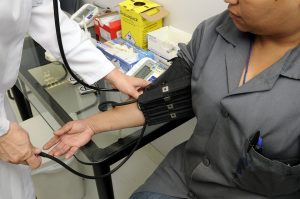
The current system of education seems to be aimed more at memorizing proven remedies that work and are effective, which is good, but not so great for developing new treatments for patients.
The thought process behind evidence-based medical school programs is to prepare students for the rigorous nature of applying the knowledge the acquired in school and using it on their patients that need treatment.
The approach that some schools are implementing is to have students test and research their options to discover the proper way of treating a patient with a specific condition, this forces students to think critically and decide the best path based on their own research.
Expert Dr. Justin Sloane, a third-year resident physician at Abington–Jefferson Health in Pennsylvania, claims “”As doctors, we’re lifelong learners,” he says. “It’s always our job to continue to read, and we need to have the tools to be able to read and analyze the articles we are reading and decide which ones are applicable and which ones aren’t well done.”
While the programs at some schools that use this methodology have opened the floodgates to such alternative medications as acupuncture and other remedies, it’s important to note that this concept comes down to the way’s it’s allowed to be taught.
As a tool for analyzing data and bettering a student’s understanding of researching solutions, then these evidence-based medical school programs make an excellent tool for students to familiarize themselves with the tools available to them.
Basically, it all boils down to the information given and the teaching methodology. Is the data current and up-to-date, are the concepts consistent from teacher to teacher, do the practices align with your own philosophies?
These are all important questions to research while you look into programs and schools that interest you. The industry seems to be shifting toward a system that focuses on the doctor’s quality of care and the outcome, to which these programs would better serve the students as well.
